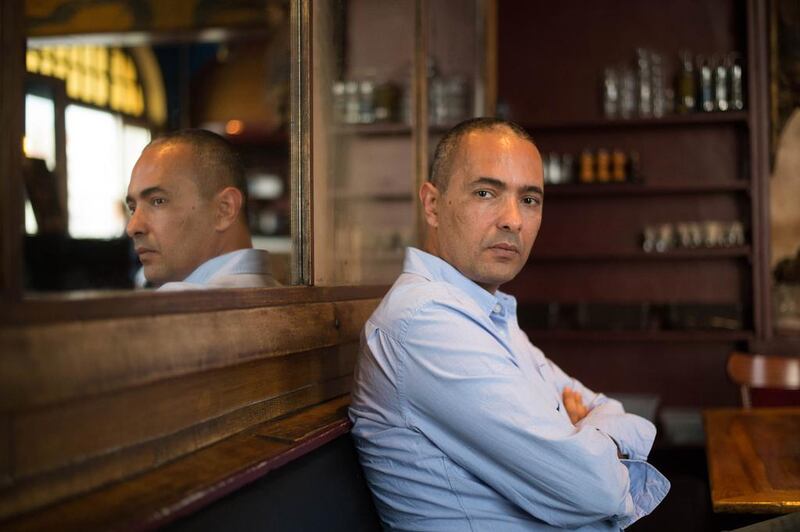The Meursault Investigation
Kamel Daoud
Other Press
Dh60
More and more contemporary novelists seem to be risking their reputations and charges of sacrilege by retooling and retelling much-loved classics.
To take one example: Pride and Prejudice is currently being updated by the American author Curtis Sittenfeld; in 2011 we got a murder-mystery sequel from PD James; and let's not forget that out-there splatter-fest from 2009, Pride and Prejudice and Zombies. Whether parodies, pastiches or mash-ups, each literary spin-off blends old tunes with new riffs while reminding us of why we loved the original in the first place.
The Meursault Investigation, the first novel by Algerian journalist Kamel Daoud, doesn’t so much rework Albert Camus’s classic The Stranger as re-approach it, and not directly but obliquely.
Told from the point of view of the brother of the nameless Arab killed by Camus’s anti-hero Meursault, the book gives a voice to Algerians who suffered at the hands of their French colonial occupiers. Daoud’s premise is inspired, his prose gutsy and thrilling, and like The Stranger it deserves to be devoured and savoured at a single sitting.
“Mama’s still alive today”: so runs Daoud’s playful variation on Camus’s famous opening line. From there, we find ourselves in a bar in Oran, a place to come to “when you want to escape your age, your god, or your wife”. Night after night, glass after glass, a man called Haran continues his tale of how he and his mother coped with his brother’s premature death and went on to survive his country’s turbulent journey towards Independence. Along the way he sees ghosts, reignites a simmering anger and offers a powerful meditation on Arab identity.
Haran's main grievance is that for more than 70 years his brother has been an anonymous victim, a man known only as "the Arab", who was killed and "who's still being killed to this day" with each rereading. Haran finally gives him a name – Musa – and promises to elevate him from "common bit player" to star of the show. But it is Haran who turns out to be the real star of Daoud's book: we learn only a little about Musa (he was a porter and handyman, and his body was swept away by the sea and never found) and far more about our garrulous narrator. As for those re-readings, Daoud's fiendish twist is to dispense entirely with Camus: in his version, The Stranger was a true story and first-person confessional penned by Meursault.
After shading in the scant details of Musa’s backstory, Haran holds forth about a childhood saturated with poverty and hunger, his father’s disappearance, his travels through the country with his mother, and the only love he has known with “free, brash, disobedient” Meriem. His bombshell comes when he admits to having avenged his brother’s death by killing a Frenchman. In his eyes this was not a murder but “a restitution”.
At this point, Daoud’s novel begins to feel like the flip side of Camus’s. Like Meursault, Haran is arrested, but instead of seeing out the remainder of his days in prison he is released – although not before being upbraided by the authorities for bringing shame upon the country by committing his crime just after Independence has been declared, not before.
As diverting as it is to note the many instances in which Daoud’s book chimes with and diverges from Camus’s, the real joy to be had here comes from the sheer force of the narrator’s candid, passionate, opinionated rants, and the colour and the vitality of his language.
He detests Fridays (“the day closest to death in my calendar”), religions (“public transportation I never use”) and Meursault’s trial (“a wicked travesty put on by idle colonials”).
Algeria is a hotbed of brutality and fanaticism. Oran is a “tumbledown, inefficient hell”, Algiers “a huge geological animal, and we were a little collection of lice on its back”.
Meursault’s world is “clean, clear, exact, honed by morning sunlight”; in contrast, Haran’s is loud, dirty, dark and bloody.
John Cullen's neat translation superbly renders these tides of frustration, despair and – in keeping with Camus – existential angst and enquiry. Daoud has struck a chord: The Meursault Investigation has scooped several major French literary prizes and at the same time proved a controversial talking-point in the author's homeland.
In the end it reads like a worthy companion piece to The Stranger, a story with the same depth and intensity, one that Harun says is written "in the same language, but from right to left".
Malcolm Forbes is a freelance essayist and reviewer.










